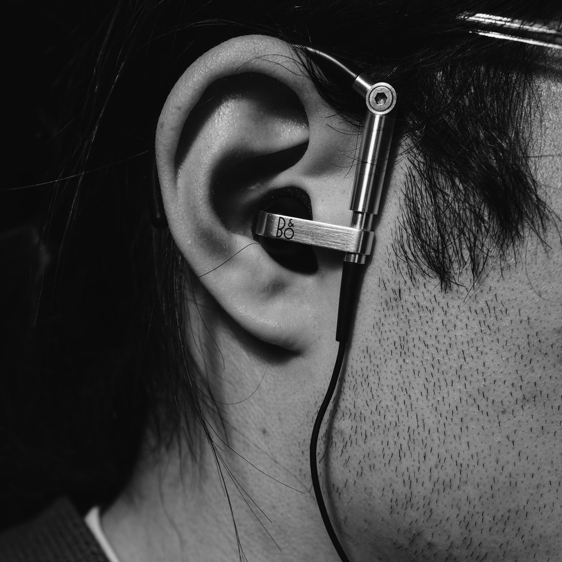What is Hyperacusis, it’s symptoms & treatment? Hyperacusis is a hearing-related in which you find it difficult to listen to everyday sounds. Experts also call the condition sensitivity to noise or sound. If you are suffering from this condition, you will find it challenging to tolerate loud sounds, but people you’re with will not notice it.
This is a rare condition. Around 1 out of 50,000 people suffer from hyperacusis. Many people with this condition also suffer from tinnitus, a condition due to which one feels ringing or buzzing in the ear. This is a hearing disorder. However, many people with this condition may have normal hearing as well.

(Source)
Symptoms of Hyperacusis
Hyperacusis has many symptoms that can be harmful to you and affect your daily life. These symptoms include:
- Ear pain
- Relationship problem
- Anxiety
- Trouble connecting and bonding with different people (avoidance and social isolation)
- Depression
Some of the sounds that you might think to be louder than they actually are:
- Car engine
- Running faucet
- Loud conversation
- Kitchen appliances such as dishwasher or refrigerator
Various people who develop severe symptoms might experience a loss in balance. Some may feel slightly bothered because of such sounds while others have seizures.
Risk Factors and Causes of Hyperacusis
As you might know, your ears can detect vibrations. If you have hyperacusis, your brain gets confused by certain vibrations. If you get the same signals to somewhere else, your brain reacts differently to them. So, then you experience discomfort.
Generally, people are not born with hyperacusis. It may usually result from certain health issues or diseases. The most common are:
- Damage to your ears, either one or both, because of toxins or medications.
- Temporomandibular joint (TMJ) disorder
- An injury to your Head(for instance, one that is caused due to airbag)
- A viral infection is affecting your facial nerve and inner ear. This condition is also called Bell’s palsy
- Tay-Sachs diseases
- Lyme diseases
- Certain kinds of epilepsy
- Using Valium Regular
- Chronic Fatigue syndrome
- Migraine headaches
- Autism
- Meniere’s disease
- Depression
- Williams syndrome
- Surgery on your jaw or face
- Posttraumatic stress disorder (PTSD)
Something like a single loud gunshot or blast can trigger the condition. Being around loud noise, in many cases, can cause hyperacusis. But being near, loud noises for prolonged periods can eventually lead to a disability as well.
Types of Hyperacusis
Hyperacusis is divided into two types:
- Vestibular
- Cochlear
Cochlear is very common. It involves feeling frustration, pain in your ear, and intolerance with everyday sounds. However, in vestibular, you will feel dizziness, nausea, and imbalance while experiencing a particular sound. In both of these types, you will experience stress, anxiety, social isolation, depression, and phonophobia (which are fear of sounds that are normally present in our environment).
Many people confuse recruitment and hyperacusis. However, recruitment is a condition in which you will experience exaggeration in your perception to hear sounds that are present in the frequency range for hearing loss. In recruitment, you will only feel certain noises loudly, but in hyperacusis, every sound will feel loud and uncomfortable. To determine what sensitivity to loud noise you are experiencing, an audiologist who is specialized in these conditions will run the loudness discomfort test.

(Source)
Home Remedies and Treatments
Hyperacusis treatment depends on the reason for this condition. If you are experiencing this condition due to injuries to your ear and brain, the sensitivity to sound may get better without any treatment.
If the condition is improving on its own, you need to visit a doctor for suggestions on sound desensitization. A specialist will work with you and help you learn the ways in which you can treat your sound problems. Through time, you need to work on low sounds that are around you daily, and after a while, you can work on loud sounds and try to adapt.
For most of the day, you will be wearing a device on your ear, either the affected one or both ears. This device will convert the sound to static, so you do not have to worry, as it won’t bother or cause pain. To benefit from therapy, you need to take it for at least six months or a year.
Other treatments for hyperacusis are not well-researched for experts to know if they are really helpful for you or not. These treatments involve relaxation, exercise, and acupuncture. People have found other available options to be effective, such as AIT or auditory integration therapy, which helps in treating autism. This treatment involves hearing music on various levels for some time on a daily basis. To manage the stress that this condition causes, your doctor may prescribe medication.
Conclusion
As experts still do not know the reason behind hyperacusis, you may be experiencing the condition because of hearing damage from excessive exposure to noise. If you want to reduce symptoms and any other hearing-related condition, you can:
- Keep the volume of the music lower than 85 decibels.
- Wear ear protection, for instance, when you are in a concert or at work.
This condition can be irritating and will affect your daily activities. If you have been experiencing this condition for over 3 to 4 days, visit a professional. Kindly contact our clinic center for treatment at 646-585-2251 or find more information on our website.
